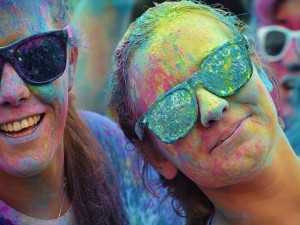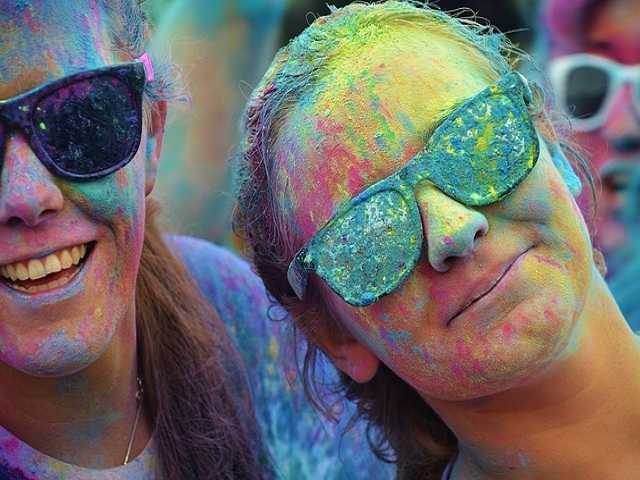 The Festival of Colors, popularly known as Holi, is a worldwide jamboree of throwing colored powder at a person’s face, dancing under water sprinklers, going to parties and swinging wildly to music. It’s a way to show trust, affection, and brotherhood, making it the right time to strengthen the bond of friendship and love.
The Festival of Colors, popularly known as Holi, is a worldwide jamboree of throwing colored powder at a person’s face, dancing under water sprinklers, going to parties and swinging wildly to music. It’s a way to show trust, affection, and brotherhood, making it the right time to strengthen the bond of friendship and love.
Upbeat songs and quaint folk dances are the backdrop of everyone laughing and embracing one another. But it’s no longer just Hindus who observe the playful festival of colors. While it originated in India, anyone regardless of age and spiritual affiliation can now join in the fun. As a matter of fact, Americans did not hesitate to welcome this tradition. Industry professionals like ChameleonColors.com note that Holi is a collection of different celebrations.
The Use of Colored Water
In Dauji, a town in northern India, many people gather a day after the Holi to celebrate the so-called “Huranga” at the Baldev temple. Religious tradition dictates that it’s a game wherein men pour liquid colors to women, and women rip the clothes off of the men. Bright colors cover not only the clothes, but also the hair, face, arms, and feet.
Say it with Flowers
Another way to celebrate Holi is to throw flower petals at each other, while there’s a loud song playing that makes the atmosphere energetic and vibrant. It can be more fun and exciting if there are different colors of flowers involved. The tradition indicates that widows chant religious hymns, as they enjoy the falling flowers and colored powder.
Bamboo Sticks
In Uttar Pradesh, there is a centuries-old practice that involves men splashing colored powder over women. That doesn’t stop there, though. Several reports explain that women chase and hit men with large bamboo staffs or sticks, while men protect themselves. Indians call this Lathmar Holi, derived from the legend of Hindu god Krishna playing with his friends and beloved Radha.
Celebrating the festival of colors is truly amazing. This is the reason it’s important that anyone considering participating must understand Holi and the influence it may have on society.


